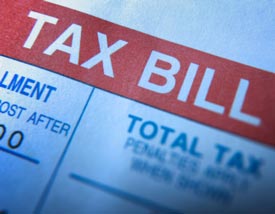
US expats who make the decision to leave the States are often rewarded with rich and prosperous lives, even though they will of course have to deal with a few challenges too. When moving abroad US expats will have many factors to consider, however, one which should never be forgotten and often does is the topic of US tax. No matter where a US citizen resides they must always file a tax return!
There are many reports of US expats believing they are exempt from filing a US return as they have already paid and filed for tax in their new country, this is simply not the case. If any of the following apply to you, as they will to most, a US tax return must be filed.
• You are single with earnings over $9,500 • You are married and file jointly with earnings over $19,000 • You are married but file separately with earnings over $3,700
Recently, the IRS has put added emphasis on taxing US expats who living overseas and those who have foreign bank accounts.
Now, this does not simply apply to the wealthy individuals who have rational offshore accounts, but also those who simply live and work abroad and bank with a run-of-the-mill overseas high street bank. In the eyes of the IRS all foreign accounts have the potential to be means for tax avoidance. Any US expat citizen who has $10K or more stored in foreign bank accounts must inform the IRS by 30th June via the FBAR form.
US expats who live and work in foreign country thus earning money from a foreign source may be able to use the foreign earned income exclusion. Under recent laws, the first $92,900 of foreign earned income is seen as tax-free in the eyes of the US government, but there are limits on sources such as rental income, dividends, interest, etc.
Regardless of where you or how you are paid, if the work was done in another country it will be seen as foreign income, even if it is paid into a US account by a US company.
Along with foreign income exclusion, you may also be able to claim tax credits credit for any foreign taxes already paid via form 1116. Be aware though that the foreign tax credit must not exceed US tax liability
Despite the normal deadline for US tax return filing standing at 17 April, US expats receive an extension- 15June. Of course, with matter such as these it’s always wise to plan ahead wherever possible and it’s also advised to seek counsel from a recommended international IFA.

